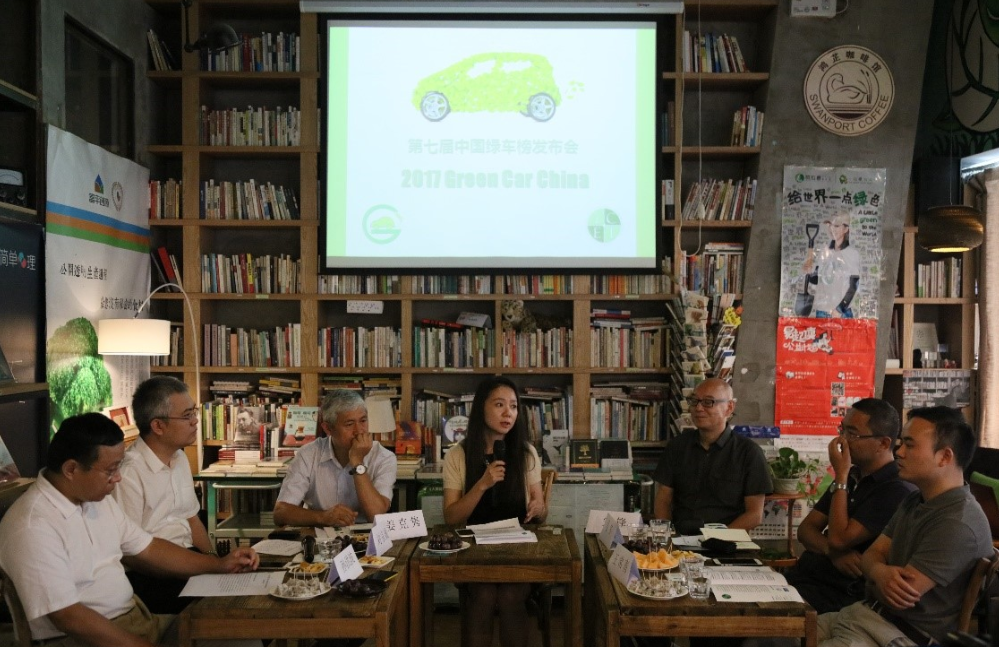News & Events

iCET released its 7th Green Car China Ranking report
On August 15th 2017, iCET released its 7th Green Car China Ranking report at the presence of over 10 media reports. The released was followed by our traditional expert panel discussion, which this year was themed How far can traditional fuel vehicle go". Among participants were Dr. Jiang Kejun, senior researcher of the Energy Research Institute (ERI) of the National Development and Reform Commission (NDRC), Dr. Liu Zongwei, associate professor of Tsinghua Automotive Strategy Research Institute (TASRI), Mr. Ma Dong, program director of Vehicle Emissions Control Center of the MEP (MEP-VECC), Ms. Xin Yan, the Program Officer of Transportation Program, Energy Foundation China, Mr. Sun Hongbo, founder of Xiaoxiongyouhao, Mr. Wang Changqing, Manager of north China area at Star Charge, and Dr. An Feng, Founder and Executive Director of iCET.
Read More…
iCET presented at the International Forum on ITS
iCET's founder and president, Dr An Feng, was invited to present at the International Forum on ITS hosted by the Ministry of Transport in Nanjing on September 8th. Co organizers of the event were the National ITS Engineering Technology Research Center and China Intelligent Transportation Industry Alliance. Dr An shared his views on China's and global future transportation and sustainable mobility as part of the Future of Transportation panel of the event.
Read More…
iCET was invited as an EV-expert to attend "Blue-Tech" Clean Air Media Training Session and educate journalists
On August 29th, 2017, the Innovation Center for Clean-air Solutions (ICCS) jointly with Center for Environmental Education and Communications of China Ministry of Environment Protection (MEP) hosted the 4th Blue-Tech Clean Air Media Training Session. During the event, a report titles “analysis of EV-Taxi promotion experiences in Taiyuan and subsequent recommendations” was released by ICCS ,
Read More…
China's Auto Magazine published iCET’s CAFC management and NEV credits analysis
On July 25, China's Auto Magazine published iCET's CAFC management and NEV credits analysis, following its independent WeChat release which attracted 672 viewers and echoed in various media platforms (Sohu cars, Phoenix cars, Tencent cars, RedDot cars, World Wide Web etc.).
Read More…
iCET contributed to GaoDe's impactful quarterly analysis highlighting the usefulness of new big-data sources in urban transportation, "Major cities' Transport Analysis"
iCET contributed to GaoDe's impactful quarterly analysis highlighting the usefulness of new big-data sources in urban transportation, "Major cities' Transport Analysis". Along with its long term partner Xiaoxiong App, iCET highlighted that there is a gap between passenger vehicles' reported fuel consumption and actual real-world fuel consumption, directly impacting carbon emissions.
Read More…